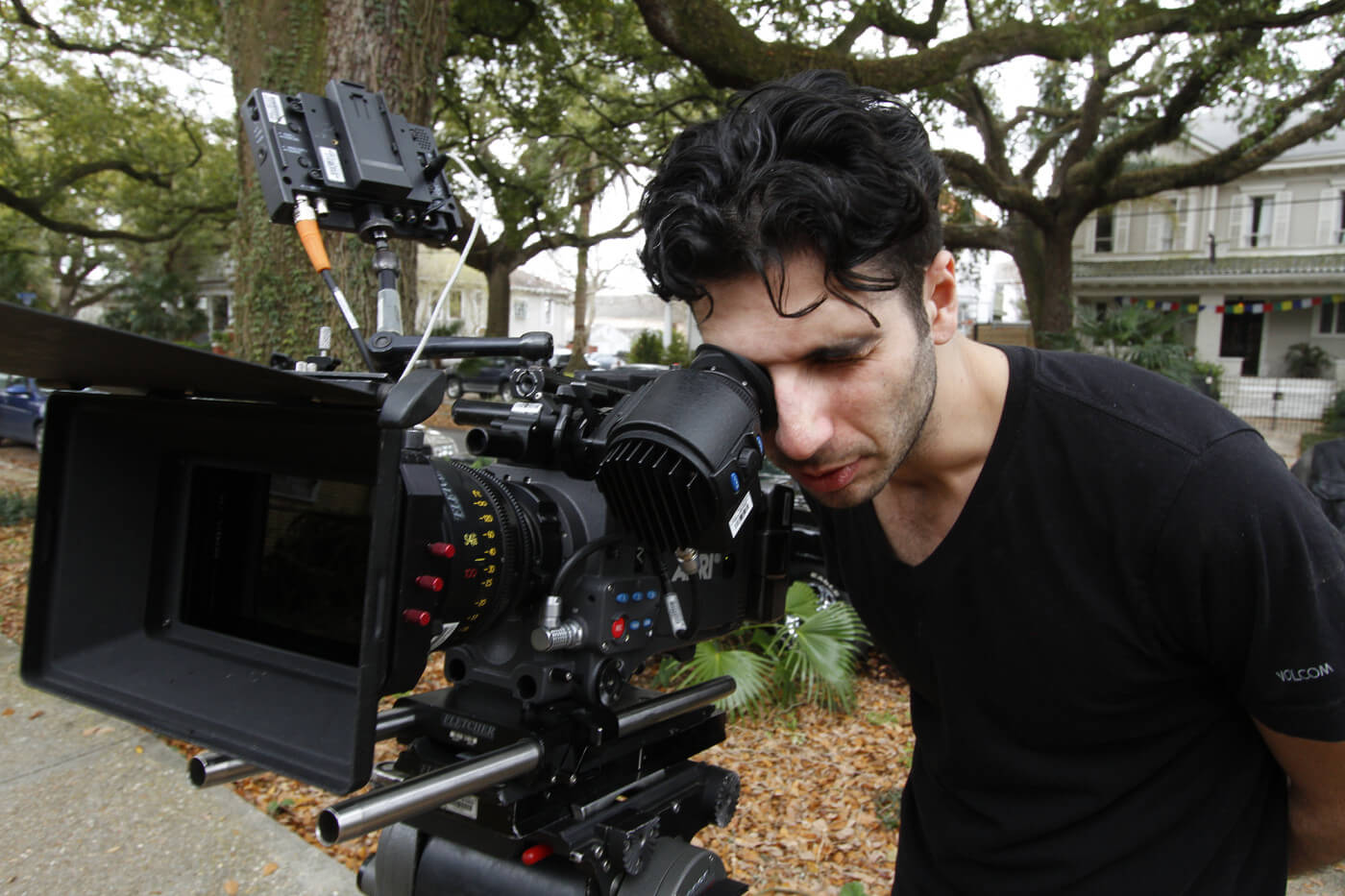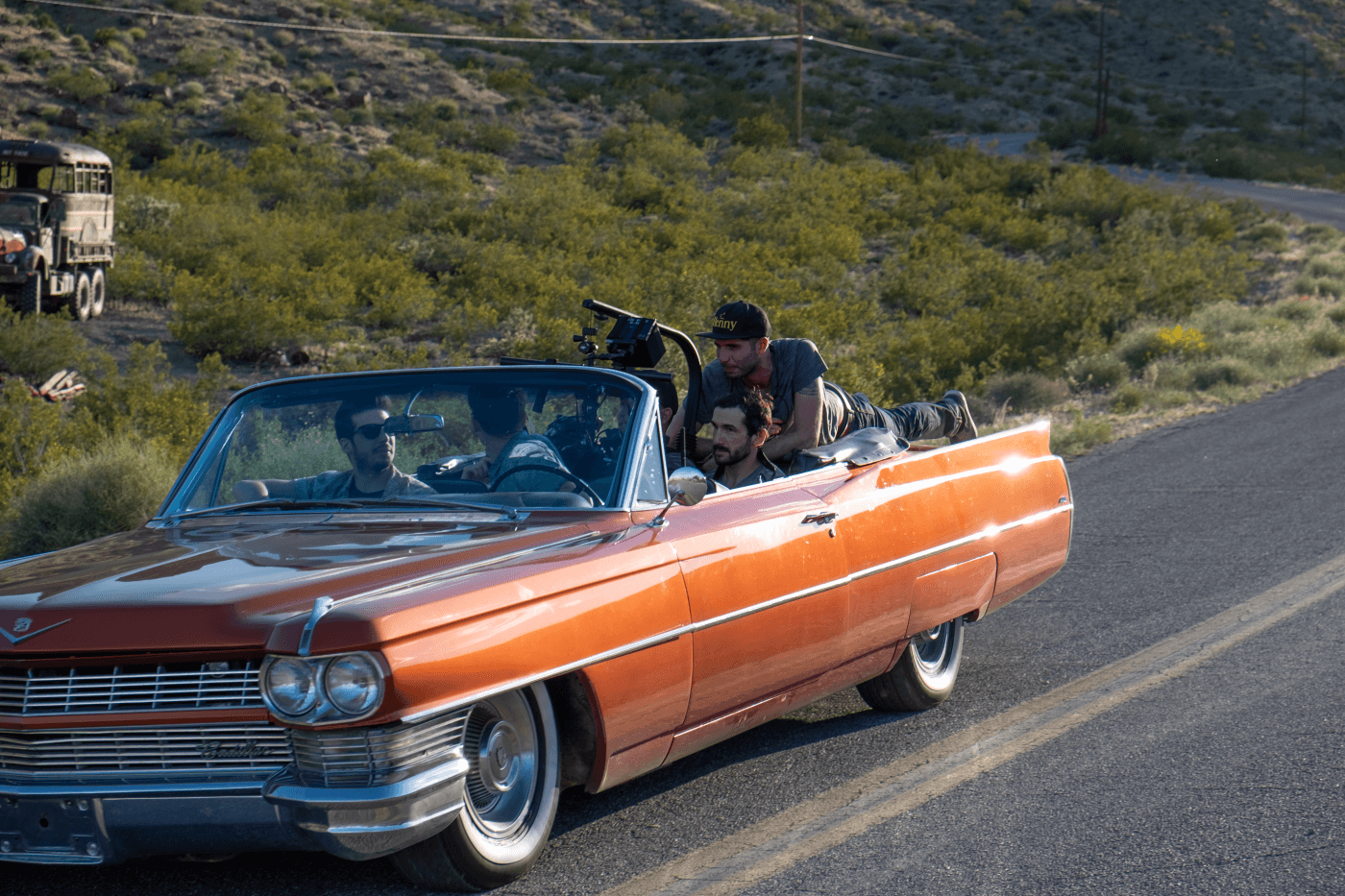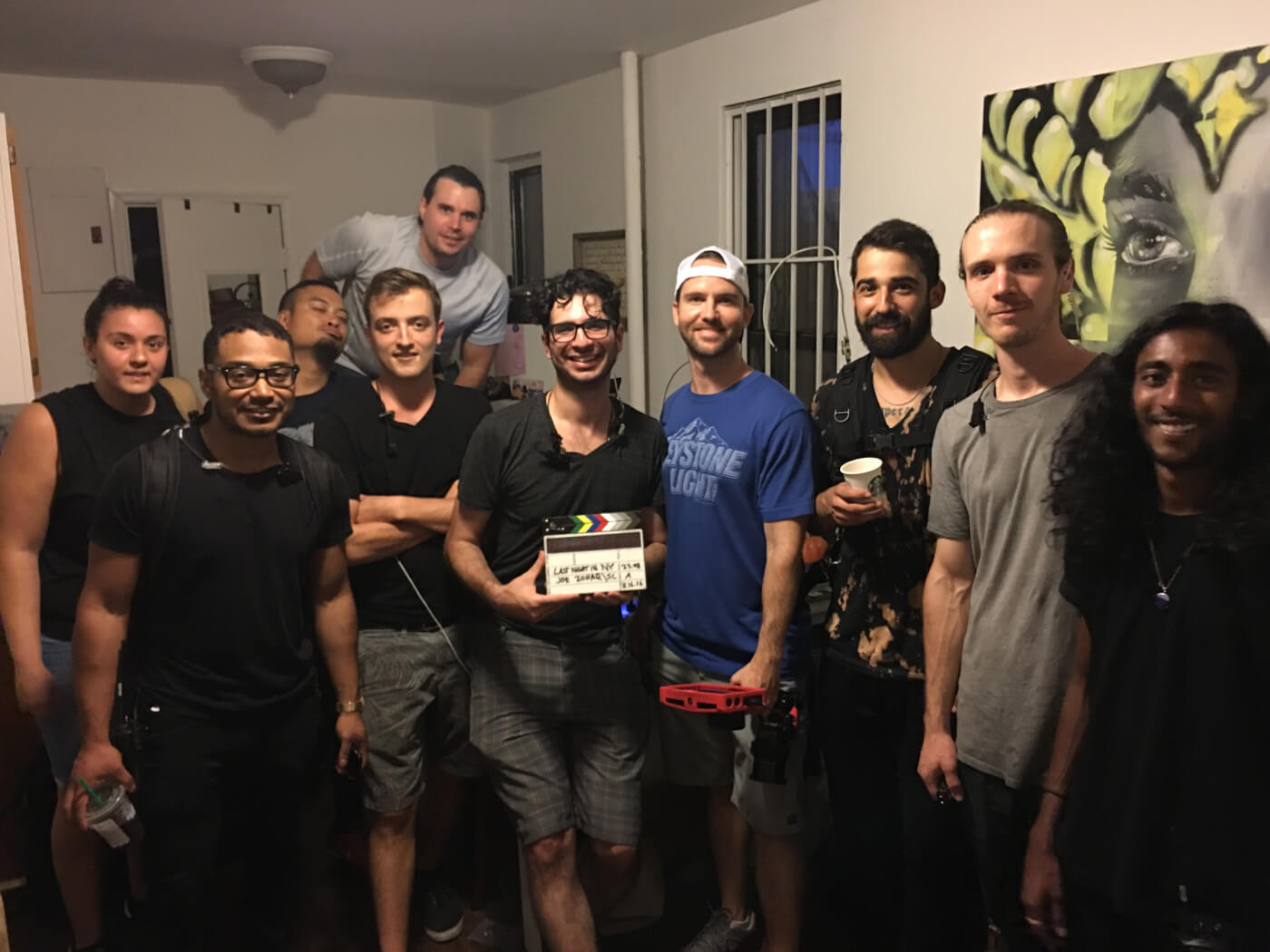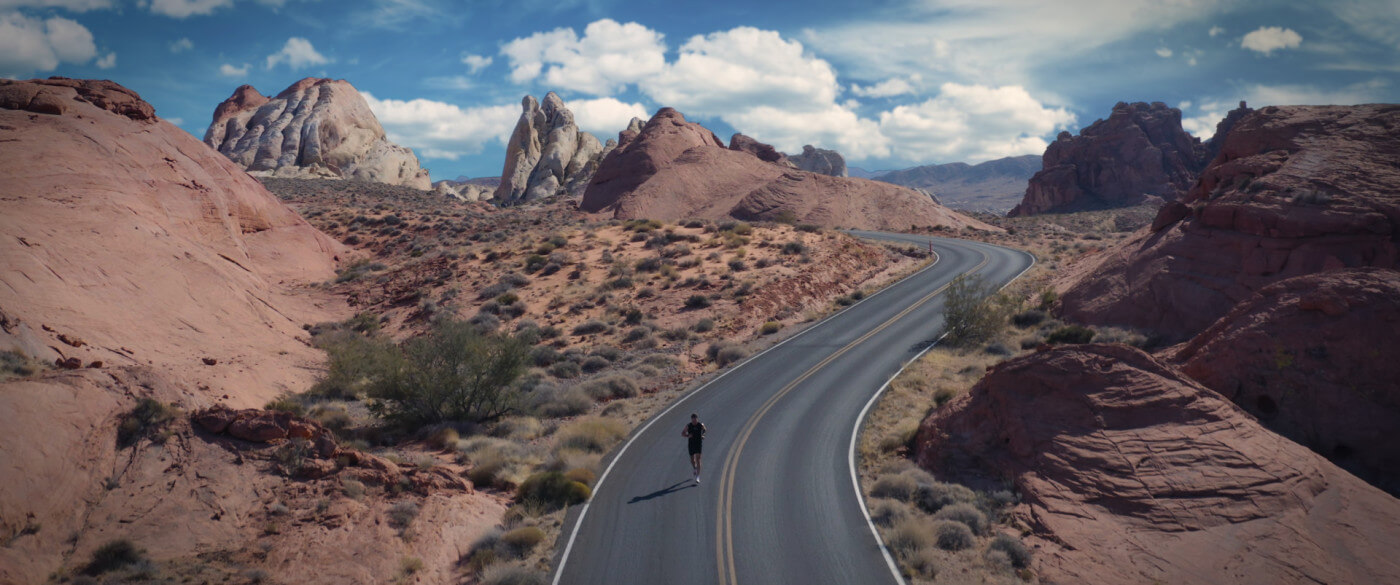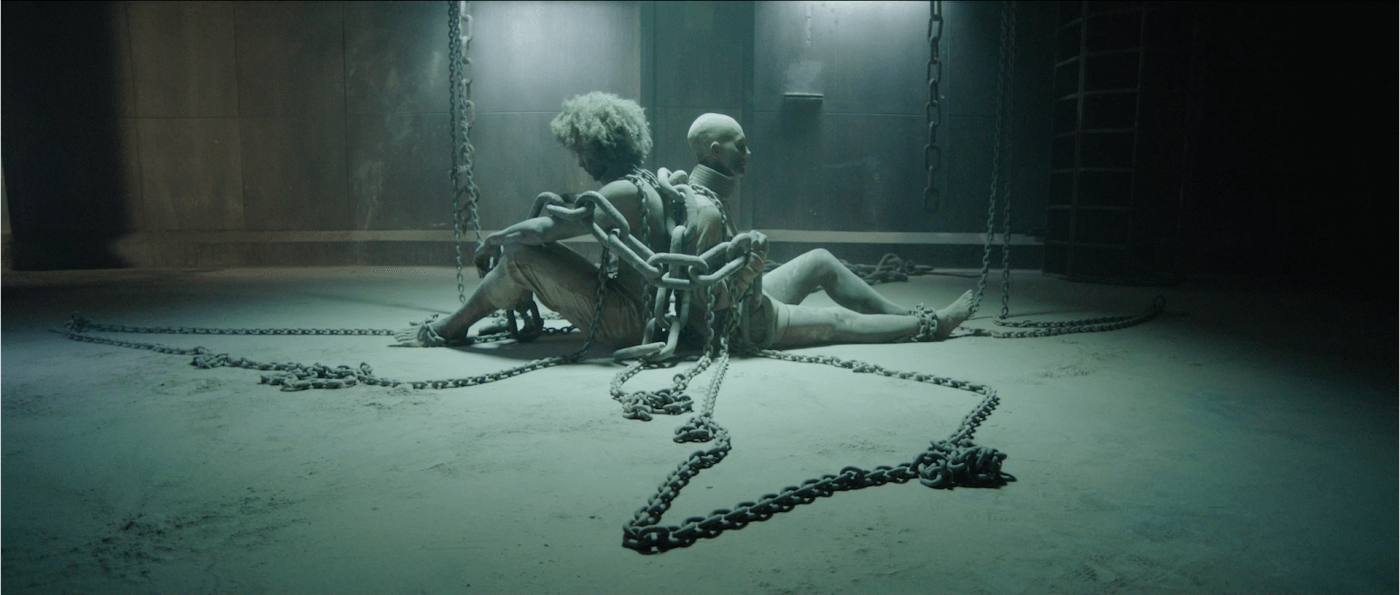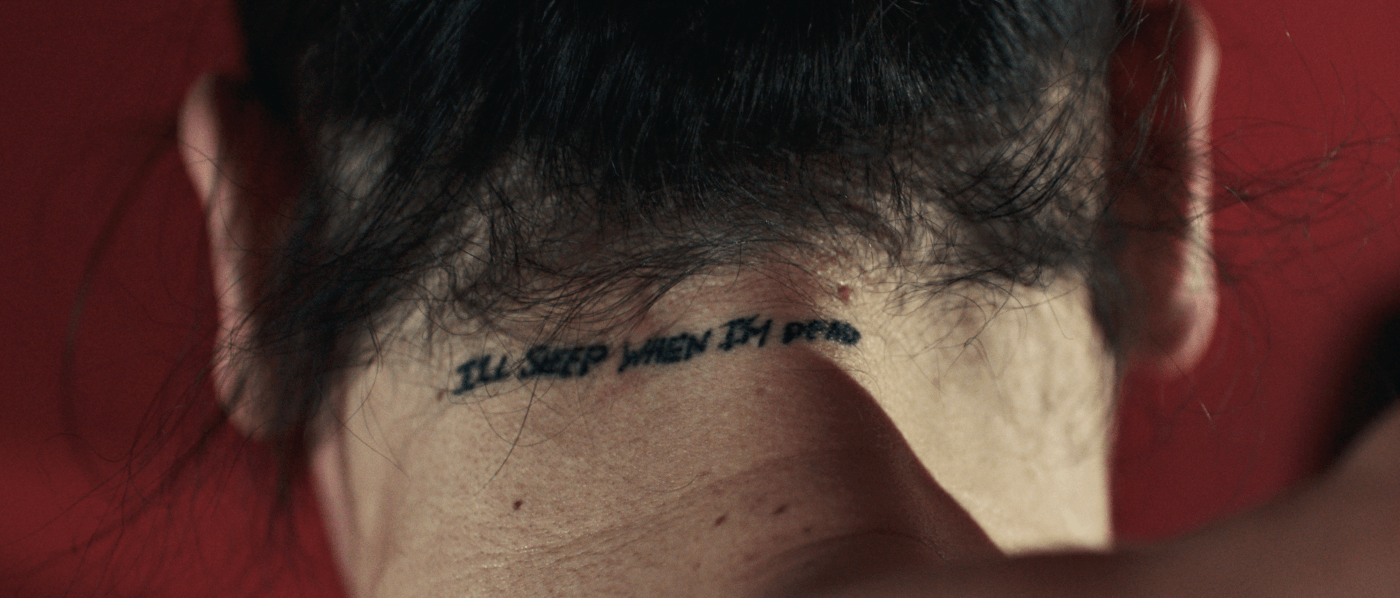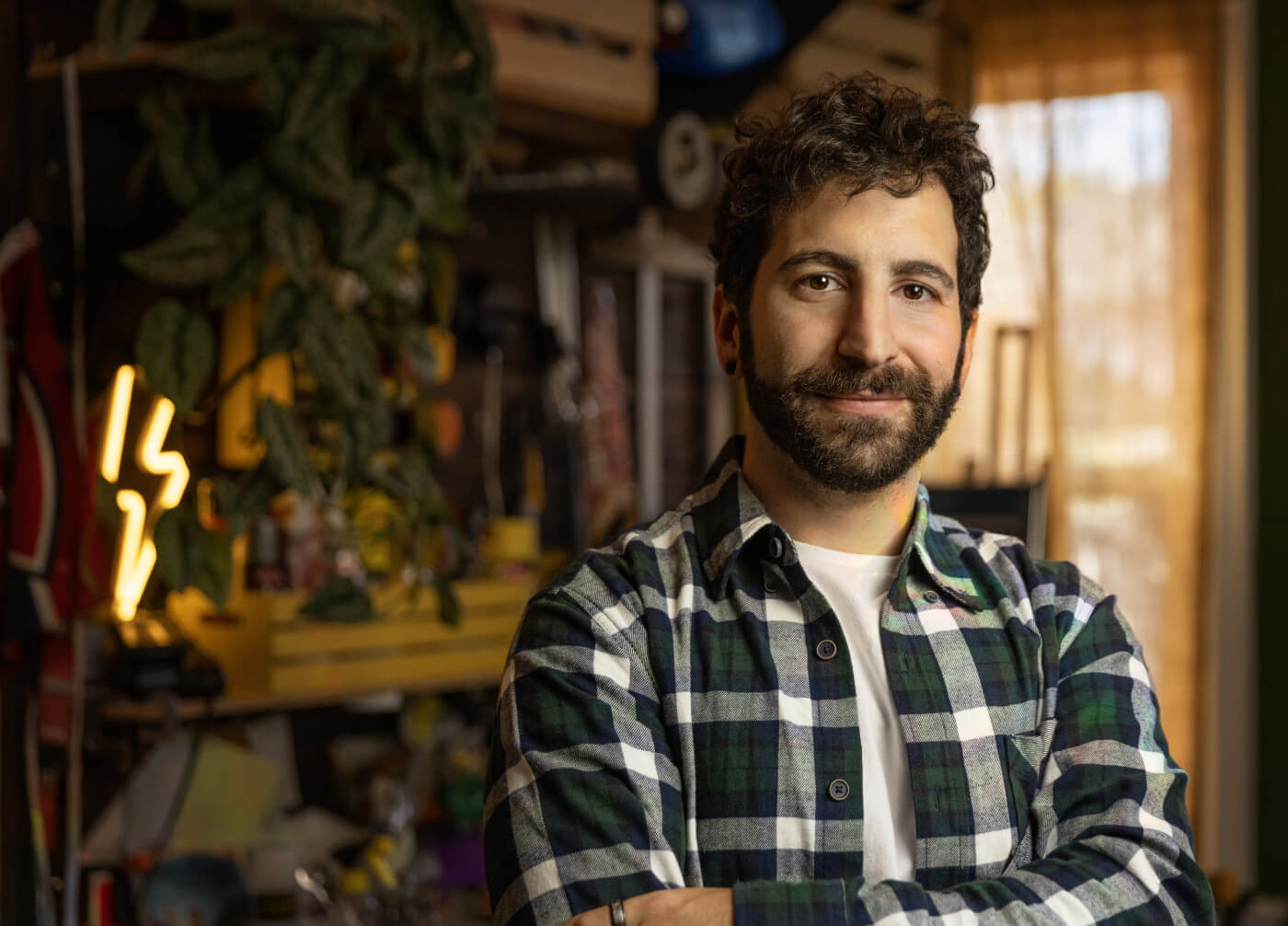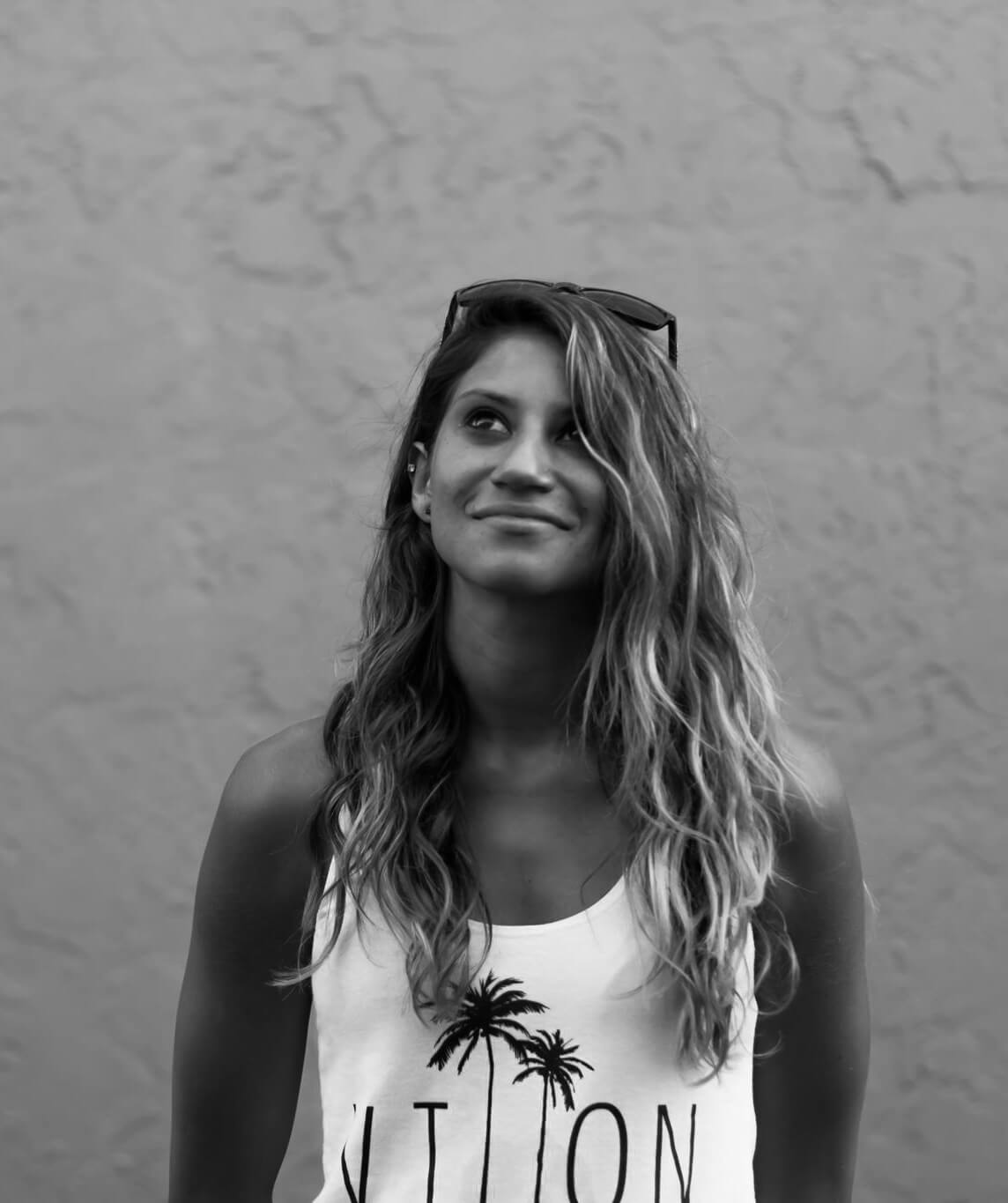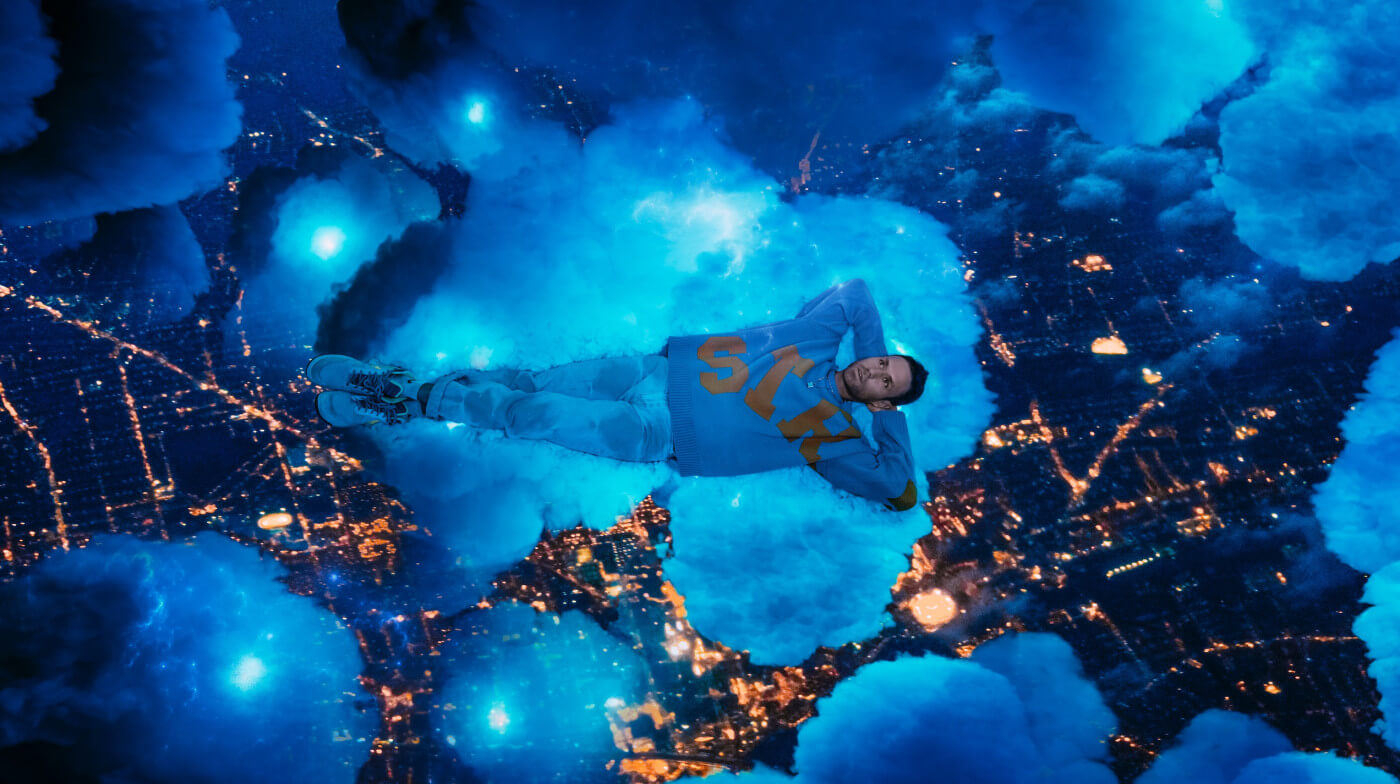For 2024, we're making every effort to bring you a new installment of the Creator Spotlight series each month! Kicking off this year with a Director and Cinematographer who has been catching some incredible momentum recently. Joe Zohar is the Creative Director and Founder of Moving Box Studios - where he has directed a wide range of music videos, branded content - and recently sold his first documentary feature! We spoke to him about his career, and you can read below for some great insight into his journey.
Behind The Scenes still from Cash Cash "All My Love" music video
If you met a stranger at the airport and they asked what you do, how would you describe yourself to them?
Someone who is beyond grateful to do what he loves. I get to wake up every day and tell stories with my closest friends, producing professional-grade work we’re proud of in a cinematic way. Often feels like the modern version of telling tales around the campfire. The ability to put your twist on history, philosophy, and art through a series of images in whatever way you can—actively contributing to the visual time capsule of now. If I had to be less esoteric about it I’d say I direct and produce commercials, branded content, and narrative film projects.
Talk to us about the beginnings of your career and how you got started.
It all began the first time I picked up a camera for a fun project with friends during an elective class in college. I had never used a camera, but felt a unique connection I had never experienced before. I worked on that project non-stop. My roommate, a film major then, saw what I was working on. He noticed an aptitude and encouraged me to take some cinema classes. First time I picked up a 16mm Bolex, I was hooked and never looked back.
After graduation, my professional career started in the mid-2000s out of Ithaca, New York. I started working with many live musicians in a community that embraced the arts and enabled creativity. Ironically, Glyph drives were the standard of the area for any musician and artist we worked with. After building up a successful local business in Ithaca, I ventured to New York City, where I began throwing live music events and making fun cinematic recap videos before it was the thing to do.
This caught on and led to directing countless productions for the world-renowned hospitality organization Tao Group. I dreamed of being a full-time artist living in New York since I was a kid and it was surreal when that became a reality. I was able to work with some of the biggest names in music and entertainment, at some of the nicest venues in the world. Shortly thereafter, I landed my first major official music video for Gramatik, which would go on to win several awards and bring me to Los Angeles, where I currently reside.
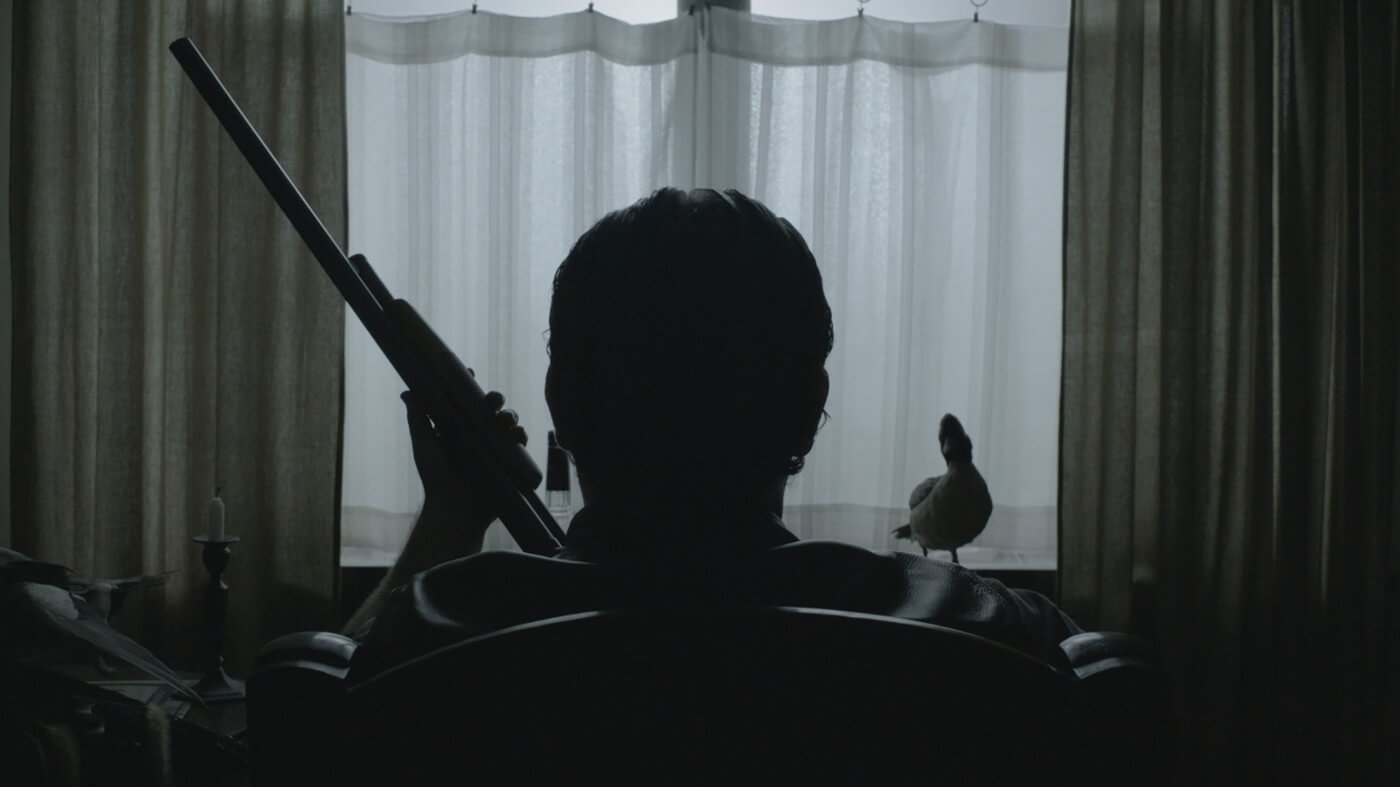
Can you touch on some of your more recent career highlights? What were some of the most gratifying moments of your career?
I’m always proud of the Gramatik “Brave Men” music video that started it all for me. I’ve directed and produced videos totaling over a billion views with everyone from Grammy-winning artists to major brands, including Coca-Cola, Red Bull, UFC, The Chainsmokers, Marshmello, Steve Aoki, Tiesto, Galantis and many more.
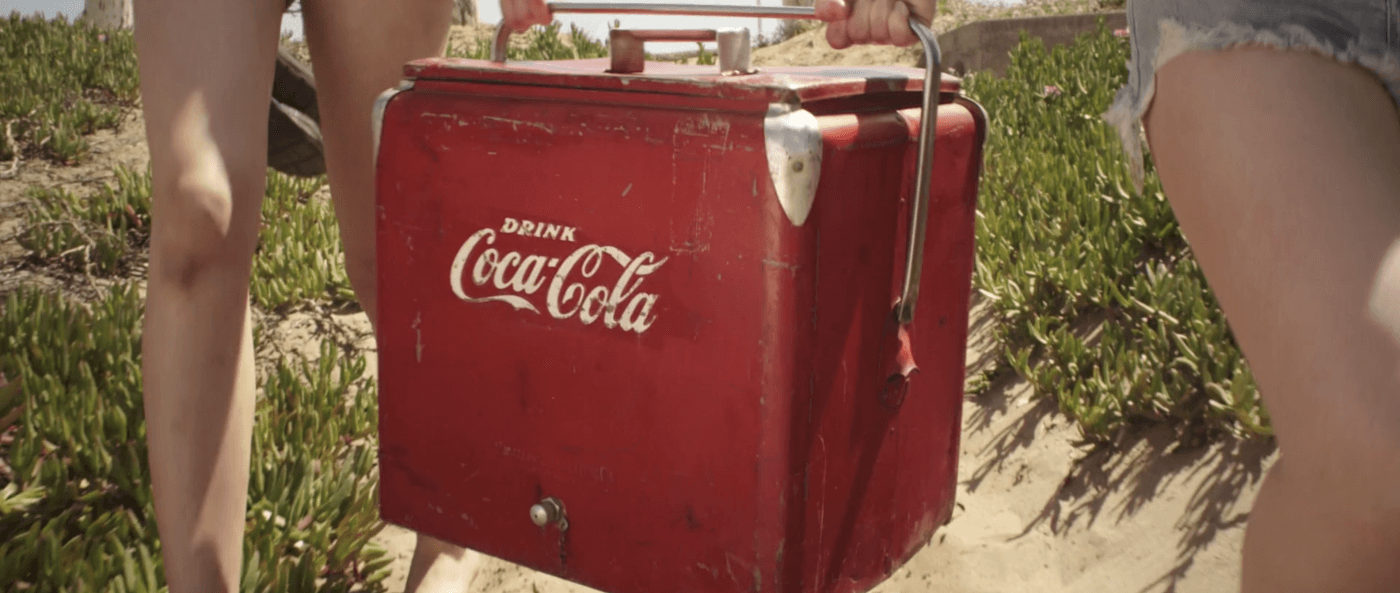
Last Night in New York was a short film shot entirely in the New York subway with my friends. The feeling of those closest rallying to help you realize a passion project is an indescribable experience different from budgeted productions.
Crew photo from "Last Night In New York"
My first national commercial with Vari was also very special to me. I had been working with Vari for several years, and when it came time to produce an engaging national commercial, they thought of me. It’s very difficult to shift lanes in this industry that is notorious for pigeonholing creatives. If you’re first known for doing “x,” then that’s what you do now. When a client recognizes your ability to do more, it feels good and motivates me to keep pushing myself every day.
I just finished my first feature documentary, which I took from conception to distribution in 2023. That was a monumental check off my bucket list, and I am already working on my next feature narrative. It’s been an incredible journey so far - and it’s far from over.
Production still from upcoming feature documentary "Breaking 10"
Can you walk us through a typical day on set with you?
Generally, start the day out with a good stretch. Breakfast sandwich, coffee, then I’m always on set, even through lunch generally. I have a hard time eating when shooting. One place you’ll never really see me is in Video Village. I don’t take a radio, and generally live beside the camera with my director's monitor. I always want to be as close to the actors/talent as possible. I never leave early and push for as many takes as possible. If we’re there, we're squeezing every drop of juice out of the shoot.
What do you consider to be your signature style?
Moodier atmospheric lighting, longer takes, solid sonic accompaniment. Sound is 60% of any exciting project.
Can you tell us about a project that was particularly challenging? How did you overcome those obstacles?
There are always challenges, but the answer is the same every time. You overcome the obstacles with your crew. That’s why I work with the same team as often as possible. Filmmaking is collaborative; without dependable soldiers, you’ll die in the trenches.
What are some of your personal challenges as a filmmaker?
Time management, lack of desire for original content. Otherwise, I have my crew, and I relish the challenges of actual production. It’s more about finding a place to be creative and stay cinematic in a landscape that inundated with “content”. The constant pursuit of finding a way to cut through the noise. If I had to be more specific, I’d say getting out of my way. Building momentum is the hardest for me; once I’m rolling, nothing can stop me. Getting the ball rolling is very taxing and requires a huge amount of self-discipline to develop the project large enough that it sucks in other creatives around it.
What are the three ‘must haves’ for every filmmaker?
A good Microphone, reliable data/production workflow, and overdone pre-production are the basics; the rest is what you do with the tools and is project-specific. As I get older, I may add an Ez-rig in there.
Can you tell us about your earliest influences as well as the people that inspire you today?
I can go on about this forever. Some of my earliest influences were from my mother, an avid film lover who got me into Chaplin and Buster Keaton. Would even choose Charlie Chaplin as my 3rd grade biography project, full costume and all. My bar mitzvah theme was also Hollywood, so the writing was on the wall from an early age. Nowadays, I love directors who find humanity in the most repugnant places - like Fincher, Alfonso Cuaron, Denis Villeneuve, and The Coen Brothers. Filmmakers like David Fincher are a massive inspiration to me. I've always connected with his precision and artistry. I immediately gravitated toward his sophistication, even when working with the grimiest subject matter. I love the darker, more suspenseful side of the cinematic spectrum. 90’s genre pictures also had a major influence on me. Films like The Crow, Strange Days, Bullet, Pi, Raising Arizona, El Mariachi, Slacker, Reservoir Dogs, and every Terry Gilliam film of the 80s/90s. Most of these directors would go on to become major studio filmmakers based on their previous smaller indie films. I admired independent artists who could make better movies than major studios, while doing it on their own terms.
Joe as Charlie Chaplin in 3rd grade
How do you stay inspired and motivated creatively?
By cutting the safety net. It's always do or die when you don’t give yourself an out. Watching older films is also a big one. Seeing what directors and creators made without all the technological advances we take for granted today is inspiring. If they could do it, so can I.
Still from The Chainsmokers "Good Intentions" music video
Can you talk about the relationship between travel and filmmaking and how that has influenced your career?
It was one of the main reasons I became a filmmaker. Finding a passion that would allow me to see the world felt like an intelligent thing to align with and was a perfect fit for production. On-location shooting is always my preference. I love to be out in the elements. Finding those uncomfortable spaces that allow for unique moments and images. I want to recognize my connection to the word “relationship” you used in the question. Relationships, in general, are at the core of filmmaking for me. It’s a collaborative art form. Traveling with a team and crew strengthens relationships both personally and professionally. It’s the ability to lean on those relationships that have allowed me to defy the odds. In short, traveling has had a direct relationship with my professional journey, as I’ve been blessed to travel worldwide for work and personal growth.
How has technology affected your career? Does anything in particular excite you about where technology's going right now?
Technology has played a massive part in my career. I went to film school in the early 2000s and remember getting mocked for wanting to shoot on digital and embrace some newer methods. I knew they would become the future standard and one of the first examples of trusting my instincts as a filmmaker. I love my Canon XL2 filmmaking days! I’ve always been an advocate of embracing technology to further storytelling. Advancements in production technology have allowed me to capture cinematic images as a solo operator without the need for bulky, huge gear and massive crews. I love working with teams, but certain projects call for a light footprint, and technology has allowed those projects to excel and shine in the same manner larger ones do.
Can you tell us about how you utilize Glyph products in your workflow?
I currently have a portable Glyph SSD drive that is a lifesaver. I use it all the time, and the data transfer rates are incredible. It is reliable, mobile, and covers most data needs on shooting days in one drive. One of the main advantages of using glyph drives is the ability to transfer large data sets on a laptop. Data for 6-8k prores videos adds up quickly. Backing up and storing such large volumes of data used to take forever. With Glyph drives, you can back up full memory cards in minutes. This is huge for me since I’m mostly on location where I don’t always have access to DIT station or in a studio environment where you can comfortably dump footage. Once in post-production, you have to deal with tight timelines and turnarounds. Having fast drives that render and move data quickly between editors and producers is priceless. With Glyph drives, I don’t need to make proxies of my footage and am able to save countless hours when rendering effects. Every minute saved is huge when you are under pressure to deliver high-quality results.
Can you tell us about a time when having a data storage strategy prevented you from losing critical work?
Simply. If data doesn't exist in at least two places, then it doesn't exist.
Being able to dump cards quickly and have backups is invaluable.
I recall a shoot when we were out in the elements and unable to dump a card full of great footage. Our producer had his laptop and our glyph drive. We could dump the entire card in minutes and get right back to shooting. I was in shock at how quickly I was able to back up 512 GB on a portable hard drive.
If you could go back in time and give your younger self advice when you were first starting your career, what would you say?
-
Patience is everything. Find those with like minds that match your energy levels; otherwise, others will suck the ambition and energy out of you.
-
Character development and relatability are the impetus for any good creation. It’s the only thing that can save your work from being taken over by AI.
-
I’d also probably lie to myself about the true costs of wanting to be an independent filmmaker because the truth of it would probably frighten me away. Going through the pain and all the mistakes is what makes you a great filmmaker. Don’t be afraid to make mistakes. Get all the junk, homages, and uninspired drivel out early so you can get to finding your voice and doing work that people connect with.
Still from Steve Aoki + Laidback Luke "It's Time" music video
Thanks for taking the time to chat with us, Joe. Excited to see "Breaking 10" hopefully get released soon, and of course, we'll be following to see what else you get involved with! Talk soon.
Thanks guys, always a pleasure. More to come.

